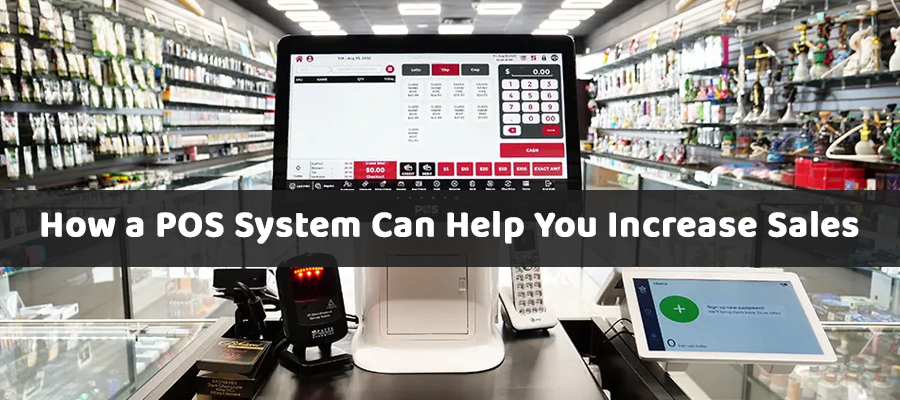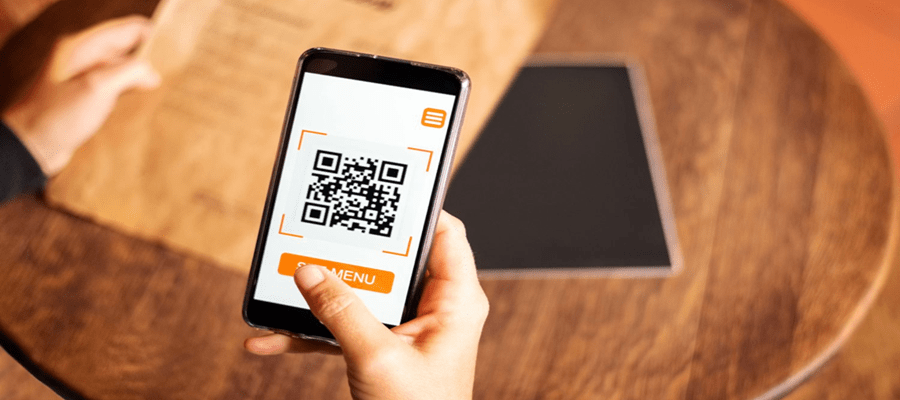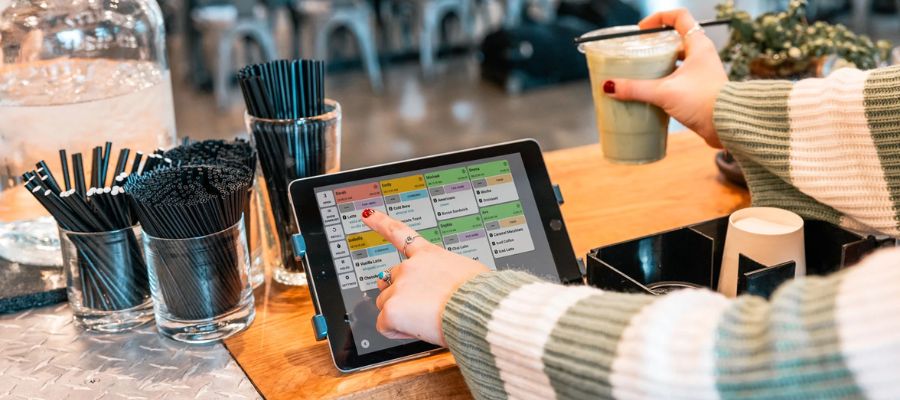
How a POS System Can Help You Increase Sales
The point of sale (POS) system is the ballet dancer in the complex dance of business, where goods and customers meet. Sturdy point-of-sale (POS) systems are more than just cash registers; they're tactical instruments that might increase revenue. Its great potential to revolutionize enterprises is frequently unrealized. You can use a POS system to improve your sales success if you comprehend its complex function.
The hub of your sales activities is your point of sale (POS) system.It is the site of business dealings, information gathering, and customer contacts. The pos experience must be flawless. The consumer journey from browsing to purchasing is defined by the combination of hardware, software, and human contact. A flawless pos encounter creates a strong impression that encourages advocacy and loyalty.
But what is included in a resume for pos experience? It's a broad skill set that includes technical expertise, product understanding, and top-notch customer service. POS specialists are the face of your company, thus it is essential that they are able to establish lasting relationships.
The road map to success is a carefully thought-out pos sales plan. It entails figuring out who your target market is, getting to know them, and customizing the point-of-sale experience for them. Every step in the sales process, from persuading upsells to clever product placement, should be streamlined.
Think of a specialized clothes retailer. Customer purchases, preferences, and spending patterns may all be monitored by a POS system. Your ability to provide tailored suggestions is enhanced by this data, which raises the possibility of more purchases. For example, a consumer buying a garment may receive coordinating accessories like a chic purse. The POS system makes this smart upselling possible, which may greatly increase income.
A point-of-sale system is also a data mine.By analyzing sales trends, you may identify top-selling products, slow-moving inventory, and peak sales periods. These tips assist you in purchasing sensibly, preventing stock outs, and taking full advantage of sales.
A data mine is also a point-of-sale system. By analyzing sales trends, you may identify top-selling products, slow-moving inventory, and peak sales periods. These tips assist you in purchasing sensibly, preventing stock outs, and taking full advantage of sales.
To market a POS machine effectively, focus on its value proposition. Highlight how it can streamline operations, enhance customer experience, and drive sales growth. Highlight achievements from companies that are comparable to your target market. Stress the ROI and give an example of how a POS system may pay for itself in a short amount of time.
There are more uses for a POS system than just transactions. It's a tactical advantage that can revolutionize your company. You can realize the full potential of the pos experience by giving it top priority, developing a strong sales strategy, and utilizing data-driven insights. Recurring customers are happy customers, so keep that in mind. Invest in a point-of-sale system that will enable your staff to provide outstanding customer service and increase sales.
The POS System's Arsenal
A point-of-sale (POS) system is essential to running a successful store and is crucial to inventory control. Enhance my writing, reduce carrying expenses, and prevent stockouts with real-time stock movement tracking. Imagine a scenario where popular items are consistently sold out, leading to decreased sales and dissatisfied consumers. A robust point-of-sale system enables you to proactively replenish inventory by forecasting demand patterns.
Furthermore, the POS system may be able to successfully handle shrinkage. By monitoring sales data and routinely counting your inventory, you may identify irregularities and potential losses. Even more advanced point-of-sale systems come with features like staff time tracking and sales attribution that help find weak places.
With a POS system, you can do more than just manage inventory—you can make data-driven choices. Performance metrics, customer analytics, and sales reports provide priceless information about the state of your company. You may determine customer preferences, slow-moving goods, and best-selling things. Equipped with this understanding, you may improve pricing tactics, customize marketing campaigns, and fine-tune your product mix.
Consider a restaurant as an example that makes use of a POS system. By looking at sales data, they may determine popular meals, peak hours, and consumer demographics. With this information, they might change the amount of employees, enhance the cuisine, and launch targeted promotions. What was the result? longer-term profitability as well as increased customer satisfaction and average order values.
Promoting a POS machine by emphasizing its capacity to boost operations and earnings is a smart move. Provide case studies of businesses that saw a noticeable boost in sales and productivity following the implementation of a point-of-sale system. Stress the system's ability to generate insightful data and encourage well-informed decision-making.
Essentially, a point-of-sale system is an adaptable instrument capable of completely changing your company. It gives you the ability to boost sales, save expenses, and obtain a competitive edge by streamlining inventories, improving customer satisfaction, and delivering priceless data. To advance your company, embrace the POS system's strength and realize all of its possibilities.
Customer Loyalty and Omnichannel Retail: The POS System's Edge
A POS system is more than just a sales tool; it's a platform for building lasting customer relationships.Customer information, such as past purchases and preferences, may be collected to provide tailored experiences that increase loyalty. A well-executed loyalty program, integrated with your POS system, can incentivize repeat business and increase customer lifetime value.
Furthermore, a key component of omnichannel retail is the point of sale system. It makes it possible for your physical shop and internet channels to integrate seamlessly. Online product browsing, in-store availability checks, and online purchases for in-store pickup or delivery are all available to customers. This omnichannel strategy broadens your audience, improves client ease, and boosts revenue.
Think of a clothing store that provides free returns, in-store pickup, and online buying. They may give consumers precise inventory information, make hassle-free returns, and make suggestions based on past purchases by connecting their POS system with their e-commerce platform. A smooth and fulfilling customer journey is produced by this omnichannel experience, which raises the possibility of repeat business.
To effectively market a POS machine, emphasize its role in building customer loyalty and enabling omnichannel strategies. Showcase how businesses can leverage customer data to create personalized experiences, increase customer engagement, and drive sales. Highlight the importance of omnichannel retail in today's competitive landscape and demonstrate how a POS system can be the foundation of a successful omnichannel strategy.
In conclusion, a POS system is a powerful tool for driving sales growth and building customer loyalty. By effectively managing inventory, enhancing the customer experience, and enabling omnichannel strategies, you can elevate your business to new heights. Embrace the potential of the POS system and unlock its full potential to achieve your sales goals.
The future of retail is omnichannel, customer-centric, and data-driven. A POS system is your essential partner in this journey. Are you ready to take the next step?
Mobile POS being Future of Retail is in Your Pocket
The growing need for convenience and mobility is causing a seismic upheaval in the retail environment. The mobile point of sale (mPOS) system is at the center of this change. With the use of this cutting-edge technology, companies can now perform transactions without being dependent on conventional cash registers at any time or location.
A mPOS system is essentially a mobile device that has been transformed into a POS terminal. It might be a tablet, smartphone, or another kind of specialized handheld device. With the right add-ons and apps, it can manage payments, keep an eye on inventory, track sales, and communicate with customers while on the go.
When it comes to enterprises that have a physical presence, mPOS provides unmatched flexibility. Anywhere in the shop, sales staff may handle transactions, cutting down on wait times and raising customer satisfaction. Because they may be set up and run without the limitations of a permanent site, pop-up stores and outdoor marketplaces become feasible possibilities.
Moreover, mPOS is a game-changer for businesses without a physical storefront. Food trucks, delivery services, and service-based businesses can accept payments on-site, providing customers with a seamless and convenient experience.
In order to sell a mPOS system well, highlight its affordability, mobility, and adaptability. Emphasize how it may assist companies in growing their clientele, enhancing customer care, and boosting revenue. Highlight the achievements of companies that have used mPOS to drive substantial expansion.
In conclusion, the mPOS system is a powerful tool that might fundamentally alter the way businesses operate. Using this technology will boost revenue, enhance customer experiences, and provide you a competitive edge in the fast-paced market of today.


